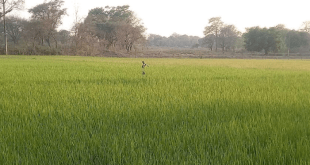As Haryana approaches its Assembly elections, Congress has taken a strategic approach that appears to marginalize Kumari Selja, a notable Dalit leader. Despite her deep connection with grassroots voters, the party’s decision seems to prioritize maintaining the influence of former Chief Minister Bhupendra Singh Hooda. This shift exposes a potential bias within the party, particularly with Selja’s growing political activity being curtailed just before the election.
Rahul Gandhi, a key figure in Congress, often vocalizes support for marginalized groups and highlights caste issues across sectors. However, in Haryana, the voice of a prominent Dalit woman leader like Kumari Selja has seemingly been silenced, as the party refrains from challenging Hooda’s strong grip on the state unit. This situation underscores the imbalance of power within Congress.
Hooda’s dominance in Haryana Congress is unmistakable. His control has reached a point where it appears as though the party itself is synonymous with his leadership. Even Selja’s loyalty and dedication to Congress haven’t been enough to counteract Hooda’s influence, which was evident during the recent Lok Sabha elections, where she argued that fairer ticket distribution could have led to a stronger Congress performance. Instead, candidates loyal to Hooda were prioritized, leaving Selja and her allies sidelined.
In terms of candidacies for the upcoming Haryana Assembly elections, out of the 90 available seats, Congress is fielding 89 candidates, with 72 of them reportedly aligned with Hooda. In contrast, only nine candidates close to Kumari Selja were chosen, reflecting her diminishing role and the broader marginalization of Dalit leaders within the party.
Despite her support for certain candidates such as Vidya Rani Danoda and Himmat Singh, both were denied tickets by the Hooda faction, further highlighting the control that Hooda’s camp exerts over Congress in Haryana.
Selja had positioned herself as a strong contender for the Chief Minister’s role, even as she expressed a desire to run in the assembly elections. However, an internal rule that prevents MPs from contesting further sidelined her, effectively eliminating her candidacy before the process even began.
This sidelining reveals deeper internal conflicts within the Congress party, especially concerning its treatment of Dalit leaders. While Congress continues to champion Dalit causes publicly, actions like those against Kumari Selja suggests disconnect between rhetoric and reality, raising questions about the party’s true stance on inclusive representation.
Ultimately, the sidelining of Kumari Selja ahead of the Haryana Assembly elections not only exposes internal power struggles but also signals an underlying anti-Dalit bias. As Bhupendra Singh Hooda’s influence grows, it becomes clear that party dynamics are being controlled in ways that favor his interests, leaving leaders like Selja marginalized.
Source: https://www.oneindia.com/india/congress-sidelining-dalit-leader-kumari-selja-haryana-elections-011-3935631.html
 Newspatrolling.com News cum Content Syndication Portal Online
Newspatrolling.com News cum Content Syndication Portal Online






